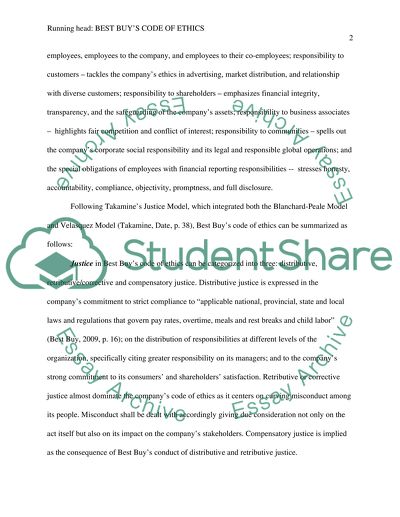Cite this document
(“Best Buy's Code of Ethics Essay Example | Topics and Well Written Essays - 2500 words”, n.d.)
Retrieved from https://studentshare.org/marketing/1392906-ethics
Retrieved from https://studentshare.org/marketing/1392906-ethics
(Best Buy'S Code of Ethics Essay Example | Topics and Well Written Essays - 2500 Words)
https://studentshare.org/marketing/1392906-ethics.
https://studentshare.org/marketing/1392906-ethics.
“Best Buy'S Code of Ethics Essay Example | Topics and Well Written Essays - 2500 Words”, n.d. https://studentshare.org/marketing/1392906-ethics.


